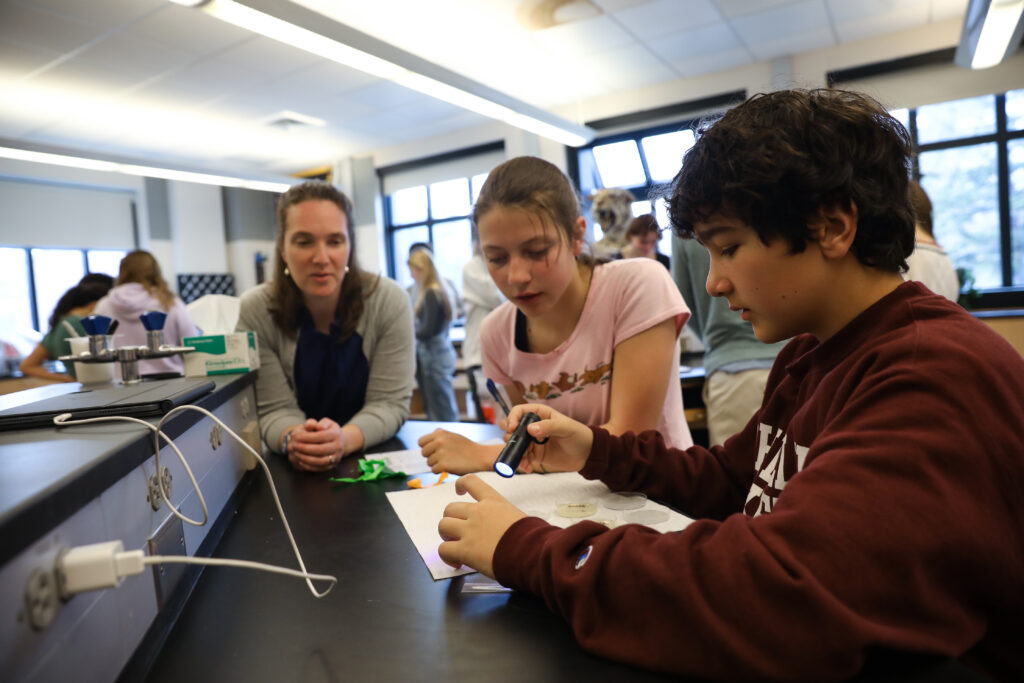See current classroom teaching opportunities
This is a place where we celebrate curiosity and cultivate belonging, and that’s possible because of our exceptional faculty. If you are a teacher who is eager to share your expertise in a residential setting, we encourage you to explore teaching opportunities at Exeter.

Competitive Compensation and Benefits
Our compensation packages are at or near the top among comparable academic institutions, and we offer generous benefits for classroom teachers and their families.
Full-time teachers live on campus for at least their first ten years with us, so housing and maintenance costs are covered. Teachers and their families enjoy access to our brand-new dining center for meals as well as full use of the library, fitness center, ice rinks, pool, track, and trails system. We also subsidize tuition at an on-site childcare center to support families with young children.
We offer excellent health and dental insurance, long-term disability and life insurance, access to a generous retirement plan and tuition benefits for children of faculty members. Highlights include:
- Retirement: A defined contribution retirement plan to which the Academy contributes 9% of salary until age 50, then 12% of salary for employees 50+ or whose salary exceeds the IRS step rate.
- Paid sabbatical: Faculty members are eligible for one term of paid sabbatical leave for every five years of service.
- Tuition/portable tuition: If Exeter is the right school for children of faculty, free day-student tuition is offered. Tuition is transferrable to other schools equal to the Academy’s day student tuition.
- Medical, Dental and Vision: Exeter offers two comprehensive health plans that cover inpatient, outpatient, mental health services and prescription drugs. The Academy also offers two dental plan options, and a voluntary discount vision benefit. Employees and the Academy share the cost of health, dental and vision plans. The Academy contributes to either a health savings account (HSA) or health reimbursement account (HRA).
Additional benefits include free subscriptions to lifestyle services (i.e. the Calm app and Care.com) and The New York Times; access to thousands of online trainings and self-help resources, and a speaker series on topics ranging from the environment and financial health to mental/physical/spiritual wellbeing.
What makes teaching at Exeter so special? Just ask our faculty.
There are definitely times where I just think I've never thought of that before, and it's great. It's awesome and partially why it's stimulating to work here. They actually have made me a better teacher.
Instructor in Science, Michele Chapman